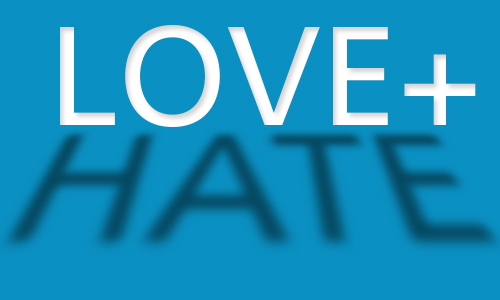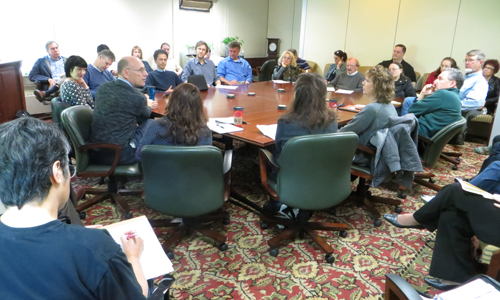By Dr. Debra Thompson
College of Arts & Sciences faculty are tackling the challenges of the 21st century by building interdisciplinary and team-taught courses around a new set of curricular themes.
This proposed thematic track—So, You Want to Change the World: Promise and Peril—addresses questions of intentionality, action, and consequence in our collective efforts to make the world a better place. At base, the guiding questions of this theme concern the major epistemological, moral, pragmatic, and contentious issues of our time. How do we create a better world? What does it take to make a difference in the world? What is the human condition and what shapes the realm of possibility for improving it? Given the vast multitude of our differences—race, gender, sexuality, religion, socioeconomic condition, locations, and locutions—how might we all live together?
We envision three main thematic tracks from which students can craft a coherent plan for their undergraduate education: (1) Engineering for Social Change; (2) Mobilizing for Social Change; and (3) Sources of Social Power. Each track will feature a diverse set of courses, both new and currently offered, which substantially engage with four pillars:
- Ideals: What are the manifest ideologies, convictions, and principles that guide human action, how did they come to be, and what are their consequences?
- Knowledge: What are our axiomatic understandings of the world and what kinds of knowledge are needed to solve problems?
- Action: What actions are necessary to affect meaningful and substantive change?
- Scale: What planes of applicability and existence constitute and reinforce power?
There are several curricular components of this theme: a first-year seminar, So, You Want to Change the World, which explores the nature of change in its many forms and examines the moral and epistemological consequences of human action; existing upper-level courses related to the theme that enable students to fulfill their A&S requirements; a robust experience beyond the classroom, which may include a co-op and/or internship program, interdisciplinary course offerings, learning communities and service-learning requirements; and a Capstone Seminar, A World of Difference, which will revisit curricular themes and encompass a substantial service-learning element that will help students understand the power and peril of good intentions and see the connection between their experience at Ohio University and the real-world applicability of their post-secondary education.
Theme Development Contacts:
Dr. Debra Thompson, Political Science, thompsd3@ohio.edu
Dr. Elizabeth Collins, Classics and World Religions, collinse@ohio.edu
Dr. Brandon Kendhammer, Political Science, kendhamm@ohio.edu
Dr. William Owens, Classics and World Religions, owensb@ohio.edu



















Comments